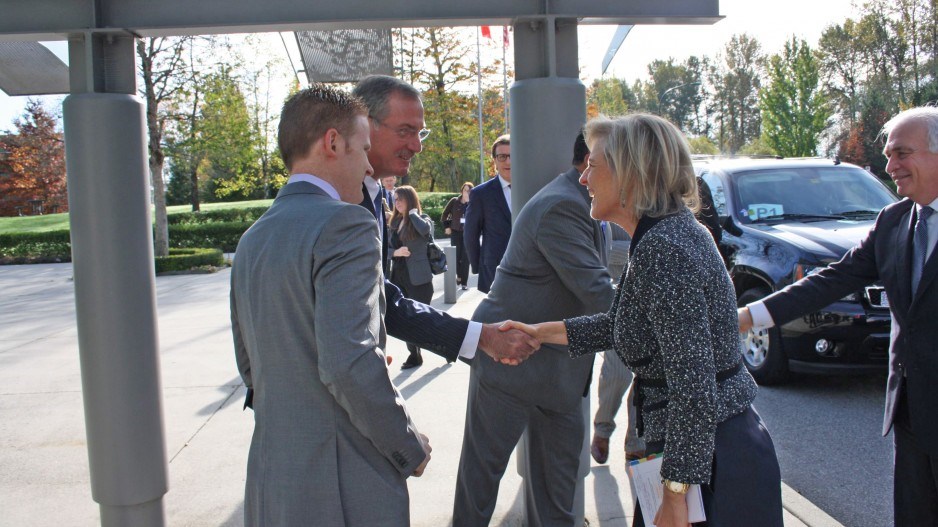It wasn’t a complete surprise for Ballard Power Systems (TSX:BLD) executives that Belgium’s Princess Astrid would visit the company’s Burnaby headquarters on an October trade mission.
The fuel cell manufacturer has spent nearly a decade supplying Belgian coachbuilder Van Hool NV with components for clean-energy buses.
Van Hool has been the Canadian company’s “linchpin” partner for deploying fuel cell buses in Europe ever since the European Union’s Joint Technology Initiatives earmarked €970 million for fuel cell technologies, according to Ballard director of investor relations Guy McAree.
“But then surprise – China’s starting to take this seriously,” he said.
“And if China starts to take something seriously, a lot of money gets flowed into solving the problem.”
In what Ballard described as the largest global deployment of fuel cell buses, it signed a deal worth $17 million in September to power 300 buses in two Chinese cities in 2016.
Its contract with Van Hool calls for Ballard to power 20 Belgian buses in 2016.
Combined with three other deals signed since June, the Chinese market has been worth $36 million for Ballard in 2015.
It’s a major turnaround for its prospects in China after axing two contracts in January with Beijing’s Azure Hydrogen at a loss of $7.5 million to the Canadian company.
“We’ve got some good partners in China now,” said McAree. “Really stable companies with deep pockets that are serious about trying to address these [pollution] problems, and it’s starting to pay off.”
While Ballard has yet to turn a profit in its 36-year history, the short-term plan is to focus on the Asian market to generate revenue and build local assembly plants in the mid-term to cut costs, according to McAree.
Vancouver’s Westport Innovations (TSX:WPT), which builds clean-energy engines that run on alternative fuels, has a similar strategy when it comes to Asia.
Westport joint venture Juniper Engines signed a deal in 2010 to supply liquefied petroleum gas engines to Clark Material Handling for forklifts that a third party assembles in South Korea.
But Westport Korea general manager Jun Chung said there is still reluctance in that market to adopt engines that are more environmentally friendly.
“If they [other companies] adopt these engines, the price will double” compared with the competitors, he told Business in Vancouver while attending Foreign Investment Week in Seoul last month.
So, like Ballard, Westport is planning to build its own local manufacturing facilities to cut costs in Asia and make its products more competitive.
While a free trade agreement between Canada and South Korea went into effect in January, Chung said its impacts on specific industry sectors have yet to trickle down.
He added that it’s still “too early to tell” if and when Westport would benefit from the deal.
But despite the surging interest in Asia, McAree said the health of the European market remains essential to lowering costs.
“We’ve come to depend on the European market to some degree to really create a reasonable flow of product.”
McAree added that the company would be able to reduce unit costs as orders increase worldwide.
Of the 48 buses currently running on Ballard fuel cells, 34 operate within Europe and so far none are in operation in China.
“What’s happening in China now is this kind of cascade,” McAree said.
“It’s happened very quickly, and it’s very large.”




